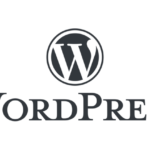In 2023, there were 2,365 cyberattacks registered. With rising concern over privacy and data security, WHOIS privacy services are now vital. These services let domain owners hide their info from the public. This stops spamming and protects against identity theft and other threats.
This article will explore WHOIS privacy, its importance, and the benefits for domain owners.
But first, let us make one point clear—if you want to find affordable domain names for your website, consider using a reputable domain registrar that offers competitive pricing as well as robust WHOIS privacy protection.
What is WHOIS?
WHOIS is a protocol utilized to search databases that keep records of registered users or assignees of internet resources.
When a person registers a domain name with ICANN, they must provide personal info. This includes their full name, street address, city, phone number, and email. All these details are saved within the WHOIS database. The general public can access this data. Everyone can look up who has registered a specific domain name by checking its registrant details with WHOIS.
The need for WHOIS privacy
The WHOIS database that holds the personal information of domain name registrants poses a potential public access risk. WHOIS privacy, or domain privacy protection, is provided by the registrar for domains. It protects this data from malicious entities. WHOIS records show the privacy service provider’s contact details, not the registrant’s.
Protecting against spam and unsolicited contacts
WHOIS privacy provides an essential defense line against spam and unsolicited contacts. Without WHOIS privacy, spammers can quickly get your email and contact info from the WHOIS database. They then use it for marketing campaigns. This leads to spam emails, phone calls, and junk mail.
Preventing identity theft and fraud
Public access to personal data increases identity theft and fraud.Cybercriminals use WHOIS database details to pretend they own domain names or carry out illicit actions, making theft easier. By restricting who can see the individual’s data, WHOIS privacy can mitigate this threat considerably—making it much harder for criminals to exploit such data for illicit gain.
Enhancing personal and business security
In business, keeping personal information secure is very important. If a company’s details aren’t protected by WHOIS privacy, competitors could use them to disrupt its operations.
They might also use cybercriminals or unhappy customers who can access these unprotected details and cause damage by launching cyberattacks or engaging in other harmful activities. Hence, WHOIS privacy acts as an additional safeguard by keeping sensitive information safe from such risks.
Protecting against domain hijacking
Domain hijacking is a serious threat. It occurs when unauthorized people take over a domain name. WHOIS information available to the public can help in these attacks, as hijackers use personal details to trick domain registrars or find and exploit security flaws. Domain privacy protection makes it harder for hijackers to access sensitive information and easier for owners to keep control of their domains.
Legal and regulatory considerations
Some individuals or businesses will have to follow legal and regulatory rules to maintain their personal information privacy. WHOIS protection helps domain owners follow data protection laws. It keeps their details from being publicly exposed.
How WHOIS privacy works
WHOIS Privacy involves your domain registrar substituting the personal information that you have submitted with that of a privacy service provider. In other words, rather than listing your name and contact info in WHOIS records, it can instead show other details. Thus, when someone does a WHOIS lookup, they see the details of the privacy provider rather than yours.
Cost of WHOIS privacy

WHOIS privacy protection costs vary by registrar and domain extension. Often, registrars offer WHOIS privacy as an extra service for a yearly charge. But some give it for free when you register the domain with them. This protection adds security and keeps your details private. So, it is often worth the cost for domain owners who want to hide their info from the public.
WHOIS privacy vs. WHOIS proxy
The difference between WHOIS privacy and WHOIS proxy services is important to understand. With WHOIS privacy, the details of the person registering are replaced by those from a privacy service provider. In WHOIS proxy services, it’s the name of the proxy service provider that appears as a domain registrant. Proxy services work like middlemen, they pass on the communication to the real domain owner. Knowing these distinctions can help domain owners choose the right service.
Conclusion
WHOIS privacy is crucial for those who value data security and confidentiality. By keeping contact information out of public WHOIS databases, you can get peace of mind as your online identity remains safe from spam, identity theft, and fraud. Investing in WHOIS privacy can give peace of mind by safeguarding your online existence, whether as an individual or business owner.











Leave a Reply